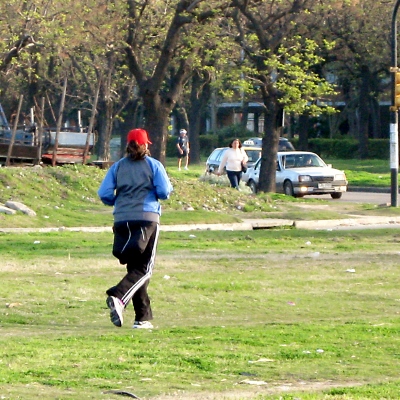 If one is exercising for under 60 minutes, water is generally the only “fuel” that will be needed during the workout. Of course, water contains no calories, but it is critical during exercise; it plays a huge role in the body’s temperature control system, keeping athletes from overheating. It is highly unlikely that one can become dangerously dehydrated from just an hour of exercise, unless it was a pre-existing condition. A combination of extreme temperature and intensity of exercise may also create a need to consume something other than water, but those are the exceptions, not the rule.
If one is exercising for under 60 minutes, water is generally the only “fuel” that will be needed during the workout. Of course, water contains no calories, but it is critical during exercise; it plays a huge role in the body’s temperature control system, keeping athletes from overheating. It is highly unlikely that one can become dangerously dehydrated from just an hour of exercise, unless it was a pre-existing condition. A combination of extreme temperature and intensity of exercise may also create a need to consume something other than water, but those are the exceptions, not the rule.
However, if one is exercising for over 60 minutes, extra fuels should be considered. Sports drinks are favored over water when exercise exceeds an hour. A sports drink will help hold off fatigue by reducing depletion of glycogen stores, and it will also help replenish lost minerals and electrolytes, such as sodium, chloride, and potassium. An energy gel, such as GU, is a popular form of energy replenishment, which should be consumed with water. A word of caution is that most contain a bit of caffeine for an extra kick.
For runners, the need to refuel can pose a bit of a challenge. No one likes to carry extra weight in hand, and having water sloshing in bottles hanging off a belt around your hip is not the most pleasant experience. The majority of runners simply try to get away with finishing a run without replenishment.
The occasional drinking fountain along the way would be a stroke of luck. I’ll admit to this strategy; however, I’ll also admit to feeling faint and having to sit down, not more than 5 minutes from the end of a long run (10+ miles or 90+ minutes). To solve this problem, I like to eat a small piece of fruit immediately before I take off, which seems to solve the problem. As odd as the concept might sound, I would rather be carrying my extra fuel in my stomach than in my hand. Another possibility is to bring along an energy gel packet, and have a drinking fountain stop planned about 7-8 miles into the run.
If I don’t sweat, do I still need to drink extra fluids? Yes! We lose a surprisingly significant amount of water through the water vapor in our breath, especially on dry days. The best way to keep track of loss of water is simply to weigh yourself before and after exercise. It is recommended that one drinks about two extra cups of water for every pound lost, but forcing down water is not the intention; using thirst as a guideline is also acceptable.





